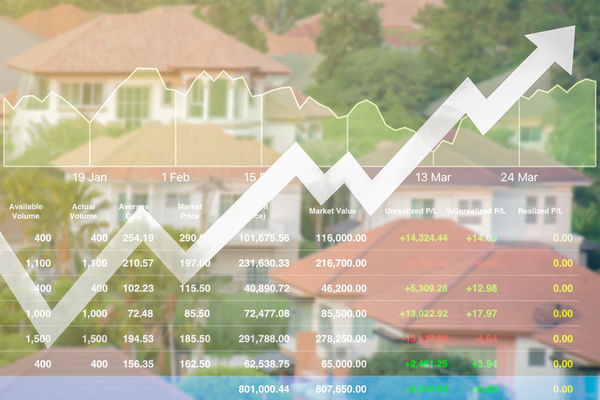Home prices in the U.S. continue to climb, alongside spiking mortgage rates, freezing increasingly more buyers out of markets, reported the Wall Street Journal.
The month of June was the most expensive month for purchasing a home in over 30 years as high prices and high mortgage rates made the market increasingly unaffordable for many while existing home sales continue to drop for the fifth month in a row.
The supply of homes, or the number of U.S. houses on the market, continues to be beneath historic average levels. It is expected to continue providing price pressures on the beleaguered market. Some elements might have peaked in recent weeks, such as mortgage rates, and home prices are expected to begin dropping in some high-demand areas, but continuing short supply is likely to prevent any significant price decreases.
“We’re not going to go back to 2019 prices,” Nicole Bachaud, an economist at Zillow, told WSJ. “Even if prices start to fall a little bit, it’s not going to be in any meaningful way that impacts affordability.”
Pivoting to look for investment opportunities globally could offer diversification potential for portfolios, and investing in the drivers of the new economy could mean opportunities forward looking. The WisdomTree New Economy Real Estate Fund (WTRE ) offers exposure to global real estate companies with exposure to e-commerce, science, or technology-related businesses, some of the core components of the future real estate market.
WTRE seeks to track the CenterSquare New Economy Real Estate Index which pulls from a parent universe of global equity securities of REITs (real estate investment trusts) as well as companies that have a significant portion (75% of revenues) of their business generated from real estate. Those companies are further screened for exposure to technology and science-related areas related to cloud computing, logistics, supply chain management, and life sciences.
The securities are assigned a technology score that takes into account a variety of new economy exposure factors, whether directly or through leasing to tenants that engage in those businesses, and the highest scoring securities are included in the index.
The index also screens out companies that are highly levered with a debt to total market cap ratio above 70%, and then weights securities by their free float market cap and their growth and valuation rank, weighting those with strong growth and/or value heaviest, up to a limit of 7.5%.
WTRE has an expense ratio of 0.58%.
For more news, information, and strategy, visit the Modern Alpha Channel.

